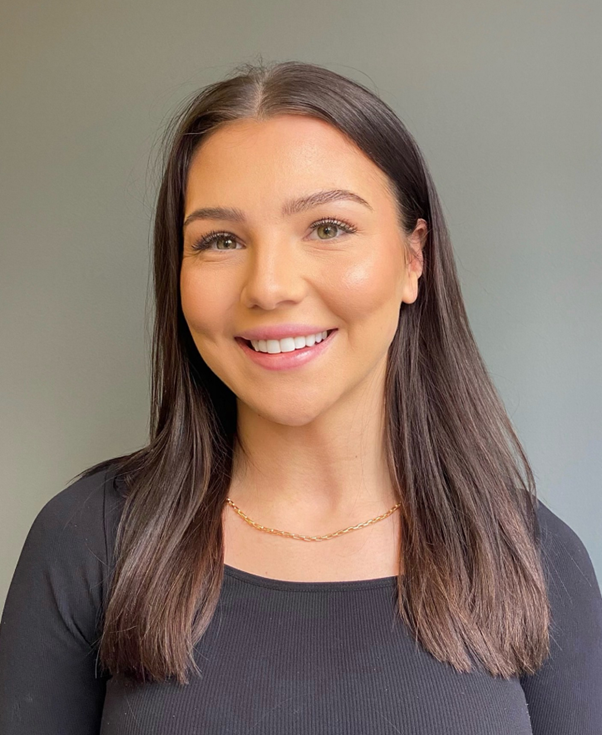Choosing Between General, Acute, or Elderly Care Medicine in the NHS
08 Aug, 202315 Minutes
The NHS is a healthcare system that ensures all people in the UK receive free healthcare when they need it most. As an international medical graduate, you may well be aspiring to join the NHS. Perhaps you like the idea of living in the UK, or maybe you have noticed that the NHS is in need of more doctors and would like to find a stable and rewarding career there, possibly to pursue training or the CESR pathway. Choosing to work for the NHS is only the first step, as the journey to the UK involves attaining all your necessary qualifications and meeting requirements. On top of that, as an Internal Medicine doctor, you have to make a decision about what kind of sub-specialty you want to pursue. Three popular fields for Internal Medicine doctors include general medicine, acute medicine, and elderly care medicine. The question is, which one should you choose? Your current medical system might not distinguish between these three medical specialties, but the NHS does, so it’s essential to understand what they are and which of your skills lend themselves to each. Each of these fields focuses on the same basic idea of internal medicine, with the areas crossing over one another considerably, yet they are still clearly defined within the NHS healthcare system. In this article, we’ll distinguish exactly what general medicine, acute medicine and elderly care are. We’ll explore what the roles involve, including the route to becoming your top choice. Hopefully, it will help you determine which field would be best for your future NHS career!
What is General Medicine?
General medicine focuses on the care of patients with a range of acute and long-term medical conditions from across the breadth of General Internal Medicine. You will need to diagnose patients, cope with co-morbidities and bring in specialists for their opinion and treatment. Some General Medicine doctors have a sub-specialty interest alongside their general work, e.g. Cardiology, Diabetes etc. You will work with a range of colleagues from various other specialties, as well as communicate with family members and patients. You may be treating a single illness until the patient is well enough to be discharged, managing a condition until a patient can undergo surgery, or providing care for people admitted under other specialties.
What to Expect as a General Medicine Doctor
As a general medicine doctor in the UK, you will work in a hospital caring for a range of conditions for inpatients and outpatients. You will typically cover the care of a large number of patients for each of your shifts. Shifts could be any time of day or night, including weekends, but you usually will have a pattern of days and then a few days off, and then a change of shift pattern. Day-to-day activities will include admitting and diagnosing patients, inserting venous lines, aspiration of fluids, insertion of drainage catheters, and prescribing drugs. You would also be responsible for lumbar punctures, connecting with other specialists to ensure the correct treatment is performed, particularly advanced cardiopulmonary resuscitation. You might have the chance to develop relationships with patients who have long-term conditions and repeated hospital visits, and you will need to communicate effectively and compassionately with patients and their families. General Medicine jobs are not very common in the NHS as it is a hyper-specialised healthcare system. General Medicine has been broken down into the various medical sub-specialties, particularly in the larger centres in the NHS. Therefore, many doctors looking for a general role will opt for the more commonly available Acute Medicine and Elderly Care Medicine pathways, where you’re still dealing with patients with issues across Internal Medicine.

What is Acute Medicine?
Acute medicine wasn’t always a distinct field in the NHS and is often not its own specialty in non-UK healthcare systems. Acute medicine sits alongside emergency medicine but as you are treating exclusively acute medical emergencies, it is broadly considered closer to general medicine. Although it is not as fast-paced as A&E departments typically are, it is still seen as urgent care, often involving dealing with inpatients to triage and direct them to specialists. They will usually be dealing with patients who have come in via A&E but are presenting acute medical emergencies so are transferred to the acute medical team. The acute team will need to deal with further management, including investigations, diagnosis and quick referrals and transfers to more appropriate departments. Generally, acute medicine doctors will work with inpatients who need urgent care and specialist attention within the first 72 hours. Acute medicine doctors come across a wide breadth of urgent conditions and, as such, are required to have a lot of medical experience under their belt. They will also need close working relationships with their colleagues across a range of specialties to be more familiar with the types of treatments available in other specialties that might benefit their patients. Acute medical doctors aim to get their patients stable enough to move to a department that can treat the cause of their problems, or to discharge them.
What to Expect as an Acute Medicine Doctor
Working as an acute medicine doctor involves stimulating, busy days in the acute medical unit. On an average day, you will take on a range of responsibilities, including diagnosing patients, treating patients, and monitoring patients. The types of conditions you’ll diagnose, treat, and monitor will often be rapid on-set and life-threatening, making the role a challenging one. However, it is also very rewarding and enriching, as it allows you to work with various patients, treating many different conditions. Some conditions you’ll see include respiratory failure, heart attacks, and asthma attacks. You’ll also liaise with many other hospital staff members, including specialist doctors and nurses. As an acute medicine doctor, you will only treat patients up to 72 hours after they arrive at the hospital, usually just after they’ve come from the emergency department. From there, the patient will either be dispatched from the hospital or sent to an inpatient ward in another area of the hospital. It’s worth mentioning that while acute medicine is a recognised specialty in and of itself, many acute medicine doctors also take on a dual specialty, such as cardiology.

What is Elderly Medicine?
Elderly medicine – also known as geriatric medicine – deals with both inpatients and outpatients. It can involve working in acute or general medicine. What distinguishes this field is the age of the patients; elderly medicine doctors work primarily with senior patients, usually over the age of 65. As elderly patients often display a wide range of co-morbidities, doctors deal with cases and issues from across general internal medicine, often interacting with one another in a single patient. There are also additional considerations, such as frailty, dementia and falls. That means elderly medicine doctors must have a wide range of medical knowledge and experience. Elderly medicine is a challenging but rewarding career, with doctors dealing with many complex and chronic illnesses.
What to Expect as an Elderly Medicine Doctor
Working as an elderly medicine doctor, you would see a wide range of elderly patients each day, providing clinical care as well as general care for elderly patients with frailty. Your work location may move around; you will be based on elderly care inpatient wards, outpatient clinics, as well as attending elderly patients in other sub-specialty wards such as A&E and acute medical units. As well as seeing a wide range of patients, elderly medicine doctors also liaise with many other hospital workers throughout the day. That includes nurses, carers, specialists, physiotherapists, and services in the community. The NHS provides a supportive environment with a multidisciplinary effort, with each healthcare professional working hard toward providing excellent elderly care. As you’ll be working with elderly patients, that also involves handling end-of-life care, which can be emotionally challenging. It can also be very rewarding to know that you are giving a person the most comfortable end-of-life care possible. It’s worth mentioning that the UK’s ageing population increases the need for elderly medicine doctors. With 40% of hospital admissions being patients over 65 years of age, more and more elderly medicine doctors are sought out. As such, there’s a high chance you’ll find work once you have qualified as an elderly medicine doctor.

Which Medicine Field is Right for You?
So, now you know the difference between acute, general, and elderly care medicine. You also know what to expect from each of these posts, which should give you a better idea of which field to pursue. To make the right decision, it’s also important to understand how your current experience and skillset might lend itself to each NHS medical post. By comparing your overseas experience and systems to that of the NHS, you can make a better-informed decision about which field is right for you. Even if you had a different job title in your current healthcare system, you might find a lot of your skills translate well to a particular field. Below, you can find out what you must do to attain each of the three positions. For each, you will need to be GMC registered, which usually involves taking and passing all of the MRCP examinations.
Becoming a General Medicine Doctor
Working in general medicine requires a wide range of clinical skills. However, the medical setting is not quite as urgent as an emergency department or an acute medical unit. As such, becoming a general medicine doctor will suit those working in smaller, less busy settings. If you have more experience dealing with outpatient work, and less experience with on-calls, general medicine might be the NHS path that suits you. Choosing a general medicine position may also suit you if you want to pursue specialty training while working for the NHS. General medicine will help you familiarise yourself with the NHS system while gaining excellent clinical experience, which will help you eventually specialise further.
Becoming an Acute Medicine Doctor
Working in acute medicine would make sense for those who have experience working in busy hospitals, particularly if you’ve worked in internal medicine, critical care or emergency medicine and dealt with a variety of inpatients. As an acute medicine doctor, you would work directly with patients who need urgent care because of life-threatening medical emergencies such as a stroke or asthma attack. Any experience working with those kinds of patients would be incredibly beneficial. Much like general medicine, working as an acute medicine doctor is an excellent way to gain a wide breadth of experience in the NHS while pursuing a subspecialty. Many UK doctors work in the acute medical unit to get used to the healthcare system before transitioning further into a different medical sub-specialty. Working in acute medicine is an excellent choice for many IMGs; it gives you plenty of exposure to the NHS system while allowing you to help those who need it most.
Becoming an Elderly Medicine Doctor
Elderly medicine is a great option for doctors with internal medicine experience as treating elderly patients and the various co-morbidities draws on skills from across many medical sub-specialties. Elderly medicine also involves dealing with dementia, frailty, and fractures from falls, so if you have experience with any of those, then even better. Working in elderly medicine for the NHS also requires a considerable amount of empathy, compassion, patience, and an understanding of more complex conditions. Elderly medicine makes an excellent choice of speciality for many IMGs, especially considering the ageing population of the United Kingdom.
Questions to Ask Yourself
Are you still not sure which specialty to go into? Choosing between general, elderly, or acute medicine can be challenging, especially when your current healthcare system doesn’t distinguish between those fields. Learning more about each field can help. There are also some key questions that can help you make a more well-rounded decision.
What Experience Do You Already Have?
One of the most important questions to ask yourself is: how much experience do you already have? Also, what is that experience in? While you might not have an acute medical unit in your current hospital, that doesn’t mean you haven’t gained the necessary experience to thrive in an acute medical role. It’s about translating your experience to the NHS roles. So, for example, if you have experience dealing with medical emergencies, then acute medicine might be the ideal field to go into when you move to the UK. On the other hand, if you have routinely worked with patients over the age of 65, your skills may translate better towards elderly medicine.
Do You Like to Work in a Busy Environment?
What kind of environment do you enjoy working in, and what type of relationship do you enjoy having with your patients? The answer to this should greatly influence what medical field you choose out of general, acute or elderly medicine. All medicine will be busy and incredibly stressful at times. However, as an acute medical doctor, you will be constantly treating new patients who are in need of urgent care, you may get to see them fully recover, but it is most likely that you will transfer them for further treatment in another department. Becoming a general medicine doctor or specialising in elderly medicine allows you to take more time with your patients and not only work out a treatment plan but the best one for that specific person. Of course, it can also be incredibly fast-paced with time in urgent care needed, but you are more likely to see your patients recover and go home. You also have the chance to specialise in another field of medicine that interests you and which you are passionate about, possibly even becoming an expert in your field.
Who Do You Want to Work With?
The NHS is a multidisciplinary system that sees doctors, nurses, and other members of hospital staff interacting every day. Due to this, you can expect to work alongside many different types of professionals, no matter which medical field you choose. However, who you want to work with should still have an impact on which specialty you choose. For example, if you are used to working around older patients, it would make sense to go into elderly medicine.
What Are Your Career Goals?
Finally, ask yourself the honest question: what are your career goals? Perhaps you would like to earn a high salary to live a more comfortable life, or maybe you’re passionate about providing much-needed care to the elderly population. Knowing what you stand for and what your aims are can help you make the right decision when it comes to choosing between acute, general, elderly, or acute medicine.
In Summary
Hopefully, this article has cleared up any confusion you had about different medicine fields within the NHS. Before choosing a role within the NHS, it’s important to understand the key differences between each position, as well as what each position entails. To briefly summarise, here are the key details of each of the four fields:
General Medicine: A general medical field that involves working with a wide range of outpatients who come into the hospital.
Acute Medicine: As a form of urgent care, acute medicine focuses on providing life-saving and urgent treatment to patients experiencing rapid on-set or life-threatening conditions.
Elderly Medicine: Elderly medicine doctors work with inpatients and outpatients who are suffering from a wide range of conditions. It’s distinguished by the age of the patient and the particular conditions; elderly medicine often focuses on age-related conditions such as stroke care and arthritis.
Keep in mind that starting in general, elderly or acute medicine can be a good path towards a more specialist field. Many UK doctors spend years working as general medicine doctors before embarking on specialty training, which allows them to work at a consultant level in their chosen field. Even if you have already worked in a specialist role in your home country, working in acute or general medicine while pursuing specialty training in the UK may be the necessary route.
About the Authors
BDI Resourcing provide expert guidance to international and UK based IMG doctors. Our unique offering has helped over 1,500 doctors join more than 100 NHS Trusts. Our Medicine team created this guide to help aspiring IMG doctor decipher between the medical specialisms available to them. If you would like to learn more about opportunities in Elderly, General or Acute Medicine from around the NHS then please get in touch and our team will be happy to help.



